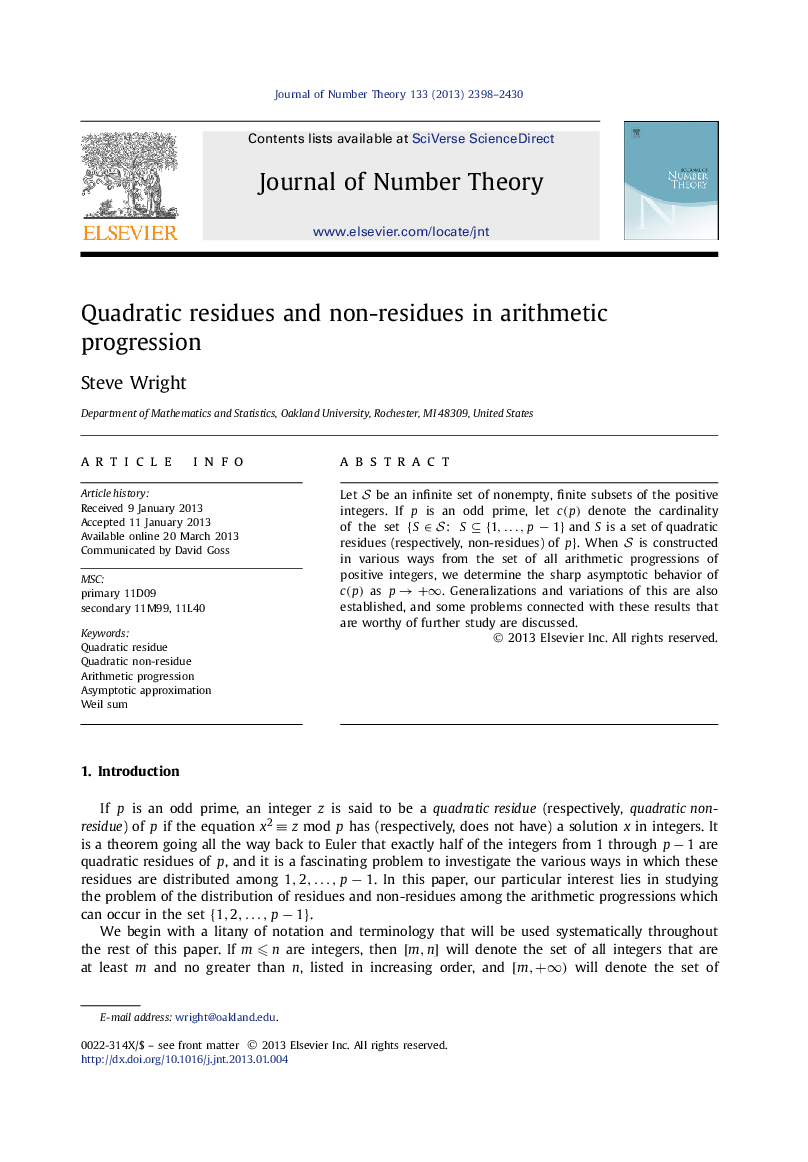| Article ID | Journal | Published Year | Pages | File Type |
|---|---|---|---|---|
| 4594034 | Journal of Number Theory | 2013 | 33 Pages |
Abstract
Let SS be an infinite set of nonempty, finite subsets of the positive integers. If p is an odd prime, let c(p)c(p) denote the cardinality of the set {S∈S:S⊆{1,…,p−1} and S is a set of quadratic residues (respectively, non-residues) of p}{S∈S:S⊆{1,…,p−1} and S is a set of quadratic residues (respectively, non-residues) of p}. When SS is constructed in various ways from the set of all arithmetic progressions of positive integers, we determine the sharp asymptotic behavior of c(p)c(p) as p→+∞p→+∞. Generalizations and variations of this are also established, and some problems connected with these results that are worthy of further study are discussed.
Related Topics
Physical Sciences and Engineering
Mathematics
Algebra and Number Theory
Authors
Steve Wright,
